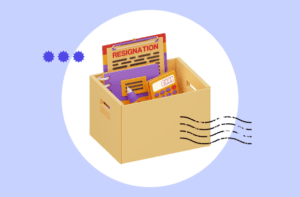Table of Contents
- What is a non-disclosure agreement?
- What is a non-compete agreement?
- What is a confidentiality agreement?
- What’s the difference between NDAs, non-compete clauses, and confidentiality agreements?
- Why are these NDAs, non-compete clauses, and confidentiality agreements important?
- Which one(s) are right for your company?
- Industry news & tips sent straight to your inbox!
Share
How do you protect your company’s sensitive information? Employees get an insider perspective on your business with access to information that you wouldn’t want your competitors to know. From your client list to trade secrets, your company needs the right protections in place. How can HR help protect your company?
The three most common types of protection contracts are non-disclosure, non-compete, and confidentiality agreements. Though these terms are often used interchangeably, there are notable differences that matter.
Learn more about these security protections for businesses of all sizes. Discover what they do and don’t do, and ultimately, which one(s) is right for your company.
What is a non-disclosure agreement?
A non-disclosure agreement—or NDA—specifically protects information. An NDA is a legal contract between two or more parties. This contract defines specific confidential information shared between the parties, but for which access to needs to be restricted. Think doctor-patient or lawyer-client confidentiality, but in this case, employer-employee.
On its own, an NDA does not prevent employees from going to work for your competitors. Rather, the NDA protects information like client lists, custom software, specific processes, and your literal or figurative “secret sauce.”
You can write an NDA to cover whatever information is important to your business, but there will be limitations. For example, you can’t legally use an NDA to discourage whistleblowers and prevent employees from reporting unsafe working conditions.
What is a non-compete agreement?
Even without access to all the trade secrets, your well-recruited and well-trained employees represent a significant investment for your company. A non-compete agreement can protect that investment by discouraging job hopping. No-competes prevent departing employees from going to work for your direct competition or forming a competing company.
In general, non-competes cannot be as broadly worded as NDA’s. Get a lawyer’s input, and expect to emphasize at least these three limitations:
- Industry-Specific – What categories of jobs or types of employers should be off limits?
- Geographical Area – Do you have a local or regional service area?
- Time Restrictive – What if ex-employees cannot go to work for your competitor immediately after leaving your company, but are permissible after a couple of years?
The extent non-compete clauses are legally allowed varies based on location and scope. In the past, courts have striken down non-compete agreements that sound unreasonable or do not offer something tangible in return—even though ex-employees agree to sign the contract in the first place.
Work to narrow down your conditions, making them as reasonable as possible. For duration, most non-compete agreements will last between six months and two years. Without forcing ex-employees to find completely new career paths, the goal should be reasonable protection for the company.
What is a confidentiality agreement?
A confidentiality agreement sounds a lot like a non-disclosure agreement. In fact, the terms are sometimes used interchangeably. To add to the confusion, the terms are used a little differently in various English-speaking countries.
Like an NDA, a confidentiality agreement protects information. In the U.S., a confidentiality agreement protects more important secrets. By contrast, an NDA might use more broad language to protect a company’s whole pricing structure and way of doing business.
What’s the difference between NDAs, non-compete clauses, and confidentiality agreements?
Each type of agreement meets different needs. Are you trying to protect specific secrets or more general information about the workings of your business? If you’re concerned about former employees working for your competitors, then a confidentiality agreement or NDA may not be enough on their own.
Many companies will use more than one contract to address similar but discrete concerns. Thankfully, you can get new hires to sign all the different types of agreements during onboarding with the help of HR technology..
Why are these NDAs, non-compete clauses, and confidentiality agreements important?
If you don’t clarify boundaries up front during onboarding, then you may have trouble responding to ex-employees helping your competition. NDA’s and non-compete agreements are documents that explain your expectations with employees.
Offboarding is just as important as onboarding, and both processes provide opportunities to review these agreements. Remind your departing employees of the non-compete and NDA paperwork they signed during orientation.
Sooner or later, you are likely to have disgruntled ex-employees, so you can’t always depend on business ethics or their polite discretion with company information. Often, the mere potential for legal consequences will be enough of a deterrent for most ex-employees. To make sure your company is protected, your employee agreements must be written in a way that makes them enforceable in a court of law.
Which one(s) are right for your company?
Many companies benefit from using a combination of different agreements. Depending on the circumstances, one type of contract may be easier to enforce than another. Think about the areas where your company is most vulnerable, perhaps with issues like data security.
For example, if your salesperson goes to work for a competitor, you may not be able to prove that they’ve shared your company’s information, but it’s clear that they’re working for your competitor. It can be harder to detect (or collect evidence for) a breach of confidentiality.
NDA’s have become pretty standardized in many industries, especially when employees have access to client information. A single contract can include sections that address both non-disclosure confidentiality, as well as non-compete terms. Get legal input on whether your planned agreements would be enforceable in court.
If legal paperwork is adding a lot to your plate, the right HR software can free up your schedule by simplifying your most tedious routine tasks.
Industry news & tips sent straight to your inbox!
Enter your email below to subscribe to industry news, product updates, and tips.
For more information on HR topics, read our HR blog and follow Netchex on social media—Facebook, LinkedIn, and Twitter.
Related articles

Solving Auto Dealership HR & Payroll Pain Points: The Best Practices Guide 2025-2026

Best Practice Guide for Improving Your Hourly Worker Employee Experience

Top 5 Reasons Why Hourly Workers Leave Jobs

